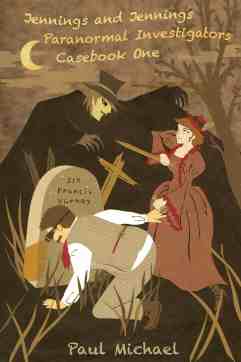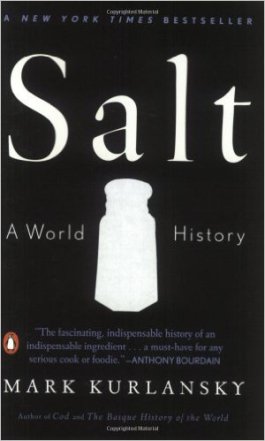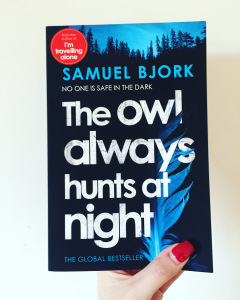

★★★
Minette Walters is best known as the author of crime novels, but her new book strikes out into fresh territory: historical fiction. She introduces us to the 14th-century village of Develish in Dorset: a prosperous, contented place despite the depredations of its arrogant lord, Sir Richard. His more thoughtful wife Lady Anne has quietly worked behind the scenes to improve the quality of life for their serfs, and received their love and loyalty in return. As Sir Richard rides out to deliver their daughter Eleanor’s dowry to her intended husband, Lady Anne’s abilities are about to be tested to the full. For it is 1348 and the countryside is troubled by rumours of a great pestilence, which kills with no respect for rank, age or piety. As Lady Anne and her serfs gather behind the manor’s defensive moat, the certainties of an entire age are about to be turned upside down.
I haven’t read any of Walters’s other books and so wasn’t quite sure what to expect from her style. The novel turned out to be slow-burner rather than a pacy thriller, admirably capturing the growing fear of the unseen, incomprehensible sickness that crosses the country so rapidly. By bringing her people within the protective cordons of the manor, Lady Anne hopes to keep them safe from the pestilence; but her decision causes new problems. Crammed into a tiny space, old feuds flare up, tempers run thin and the petulant Eleanor seethes at being forced to share living space with serfs. She is especially incensed when her newly independent mother appoints a new steward: not a proper man of Norman blood, but a bastard serf, Thaddeus Thurkell. Never mind that Thaddeus is sensible, bright and ambitious: Eleanor sees his appointment as a sign that her father’s values are being traduced, and she sets out to challenge her mother’s plans.
While I found this book very readable, there were several things about it that jarred with me. For a start, I couldn’t help feeling that several of the characters were modern men and women wearing medieval costume. Lady Anne, our heroine, has entirely modern values. She teaches the villagers to read; she introduces the concept of designated latrines and the importance of bathing; she even encourages her serfs to think of shrugging off their bonds and making new lives for themselves as freedmen. Naturally we sympathise with her views, but only because they speak much more of 21st-century attitudes than they do of those from six hundred years ago. And, if Lady Anne is philosophically ahead of her time, the pernicious Eleanor is an absolute brat, pure and simple. There are reasons for her difficult nature, as we discover, but she behaves so viciously that I can’t believe even the saintly Lady Anne would treat her with so much forbearance. Eleanor needed a slap on about page 4 and, not having received one, went on to poison the rest of the book. Rarely have I so longed for a character to die horribly of the plague. In fact, Walters gives most of her nobility short shrift: all but Lady Anne are avaricious, cruel or pusillanimous, perhaps because she’s also the only one of Saxon rather than Norman blood. (The Normans do not come out of this well.)
Thaddeus is considerably more interesting, and fulfils the standard ‘tall, dark and handsome’ formula for a historical-fiction hero with aplomb. He is a bit too good to be true, and I couldn’t help noticing that we’re specifically told he isn’t all that confident with a sword or a bow, as if to say that he may be tall and olive skinned with long jet-black hair and an air of natural leadership, but – honestly – he has his flaws. There’s clearly some kind of exciting backstory about his birth that’ll come out at some point, but don’t hold your breath. As I said, the book is slow-burning; it’s 560 pages long in the hardback version; and, sorry to break it to you, but it ends very abruptly with a ‘to be continued’. This annoyed me. There had been no warning that it was the first in a series and, having loyally read several hundred pages, I was on the point of seeing it all come to a nice, neat conclusion – and then it stopped. Just another chapter could have tied up some of the loose ends, surely, and given us a much more satisfying conclusion? (It also begs the question: what will the sequel be called? The Really-The-Last Hours?)
Having said all this, it’s a novel which never shies from the horror of the Black Death and the very grim things that had to be done to contain it. There are some clever twists and turns in the plot, but I must confess that its characterisation wasn’t quite strong enough for my liking and that I was distracted by what I perceived as anachronisms. I’m outnumbered, of course, and you should go to read some of the enthusiastic reviews on Amazon to help you decide whether or not this is something you might like. Walters has an enthusiastic fanbase and I hope her new venture will encourage more readers to dip their toes into historical fiction. For my own part, I probably won’t be seeking out the next volume in the story, although I’d like to know what is eventually revealed about the brooding Thaddeus. If his father turns out to have been a dashing Saracen pirate, you heard it here first.
Buy the book
I received this book from the publisher via Netgalley in return for a fair and honest review
Share this:




